Records show 10-50% of first responders declined COVID-19 vaccine

Records show 10 to 50 percent of first responders declined COVID-19 vaccine
Thousands of Wisconsinites are rolling up their sleeves, eager to get a COVID-19 vaccine. Others are saying, no thanks, but just how many are declining a vaccine when offered?
MILWAUKEE - Thousands of Wisconsinites are rolling up their sleeves, eager to get a COVID-19 vaccine. Others are saying, "no thanks" -- but just how many are declining a vaccine when offered?
The FOX6 Investigators set out to measure the magnitude of vaccine hesitancy and how that could delay the end of the pandemic.
There is no question the COVID-19 vaccines approved for emergency use so far are the fastest vaccines ever developed. After a year of social distancing and restrictive living, millions of Americans are lining up for their shot of history.
"This is like, historic," said a vaccine recipient at Hayat pharmacy.
"It's patriotic," said a firefighter at one of the state's first vaccine clinics in December.
"I'm in," said a military veteran at the Milwaukee VA hospital. "Get this junk over with."
FREE DOWNLOAD: Get breaking news alerts in the FOX6 News app for iOS or Android.
For some, the life-saving serum might as well be liquid gold. But others are skeptical of the scientific promise that the vaccines are safe and effective.
"I'm nervous about it," said Shane Ryan, a veteran with severe anaphylaxis.
"Honestly, the biggest thing is you can’t trust the media," said Doug Myers, a volunteer firefighter in Wind Lake.
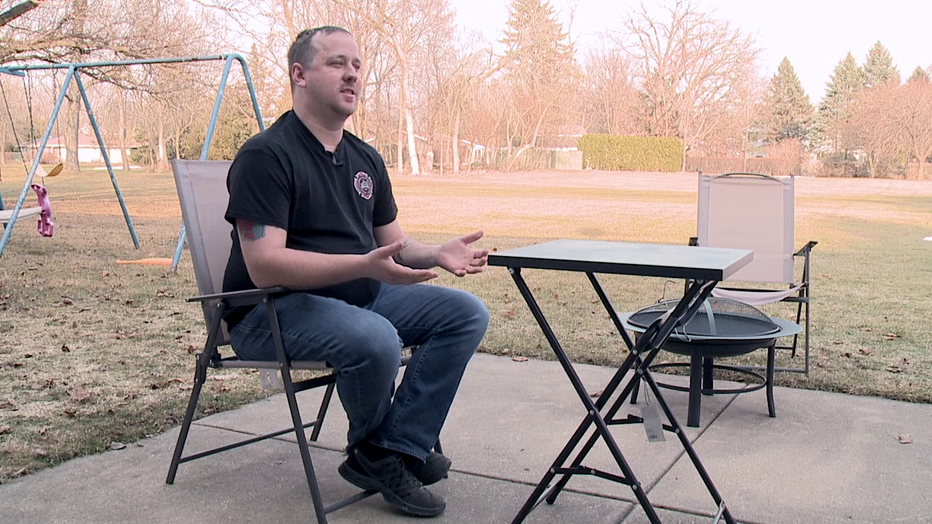
Doug Myers, volunteer firefighter for Wind Lake Fire Department
Myers already had COVID-19 and said he only experienced mild symptoms. He worries about the uncertain side effects of the vaccine.
"l feel like almost just getting COVID is not as bad as maybe getting the shot," Myers said.
"It's almost a catch 22," said Ryan, who has a compromised immune and a history of allergies to things like Penicillin.
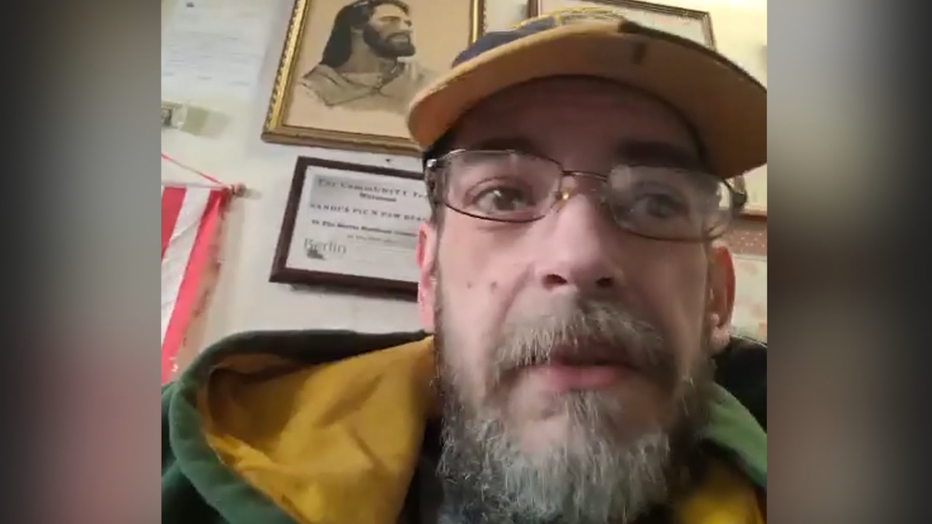
Shane Ryan
Ryan and Myers are among more than three dozen FOX6 viewers who responded to our online inquiry, which asked those who've declined a vaccine the simple question: Why?
One wrote that the whole vaccine campaign is about "controlling the masses." Two others raised concerns about the connections between vaccine research and cell lines derived from aborted fetuses.
By far the most common concern, however, is that the vaccine is simply too new.
Vaccine rejection & herd immunity
Whatever the reasons, President Joe Biden's Chief Medical Advisor Dr. Anthony Fauci says reluctance to get a shot could prolong the time it takes for the country to reach so-called herd immunity. That's the point at which so many people are immune that the virus runs out of hosts and stops spreading.
"We don't know what that number is," Dr. Fauci said in a White House briefing in early March. "If a significant number of people do not get vaccinated, then that would delay where we would get to that endpoint."
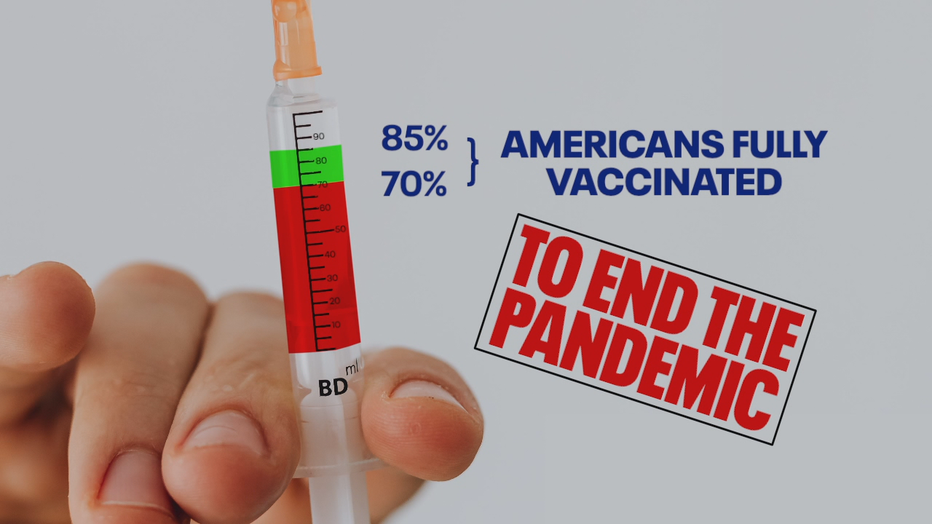
Fauci estimates that 70-85% of Americans need to be fully vaccinated to end the pandemic. As of March 17, Wisconsin has fully vaccinated just 13% of the state's population. But at least health officials know how many have gotten injections. What they do not know is how many have been offered a shot and declined.
Asked if the Department of Health Services was actively tracking that feedback, Deputy Secretary Julie Willems Van Dijk said "no."
"That isn’t something we’ve built into our data collection system at this point in time," Willems Van Dijk added.
Vaccination rates vary among first responders
The FOX6 Investigators set out to do what the state has not -- measure the extent of vaccine hesitancy. To do that, we had to request public records.
Hospitals and long-term care facilities are not subject to public records laws. So instead, we focused our investigation on another top priority group -- first responders.
"This is a super safe vaccine," said Nick Eschmann, EMS division chief for the Kenosha Fire Department. "Let's stop people from dying from this."
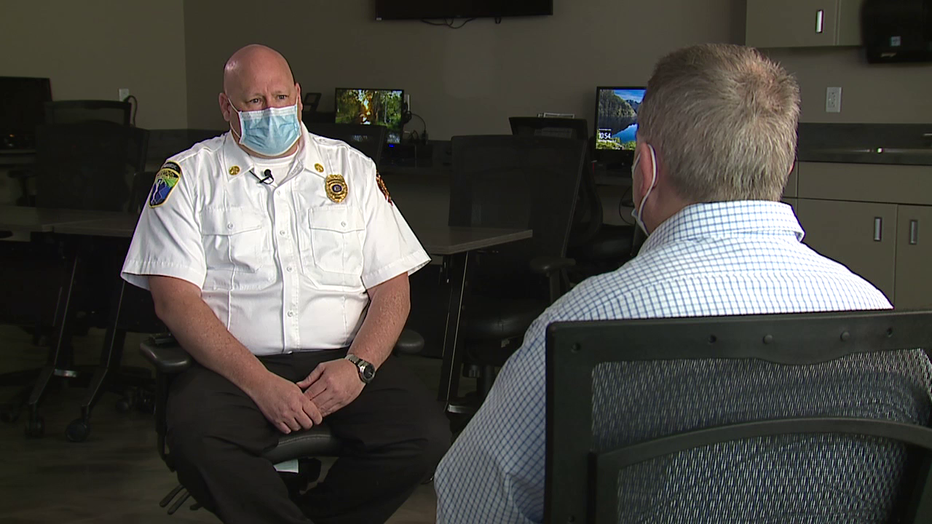
Nick Eschmann, EMS division chief for the Kenosha Fire Department
FOX6 asked police and fire departments in the five largest cities in southeastern Wisconsin for vaccination records, with personal information removed -- that's five fire departments and five police departments in Milwaukee, Waukesha, West Allis, Racine and Kenosha.
Seven of the 10 departments responded, six of which had enough information to paint a picture.
"We were the first fire department in the state to put needles in arms," Eschmann said.
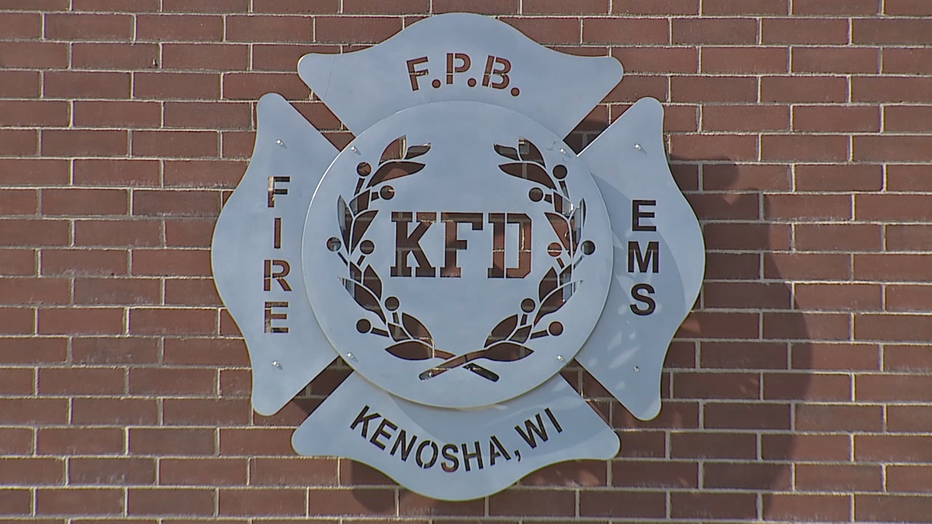
Among those who responded, the Kenosha Fire Department has vaccinated the greatest proportion of its staff -- more than 88%.
"I'm proud of our union. I’m proud of city leadership. It’s a great accomplishment," said Eschmann.
Even in Kenosha, though, 12% of firefighters declined to get vaccinated.
"The second you change your mind, come see me," Eschmann said. "I'll get you a shot."
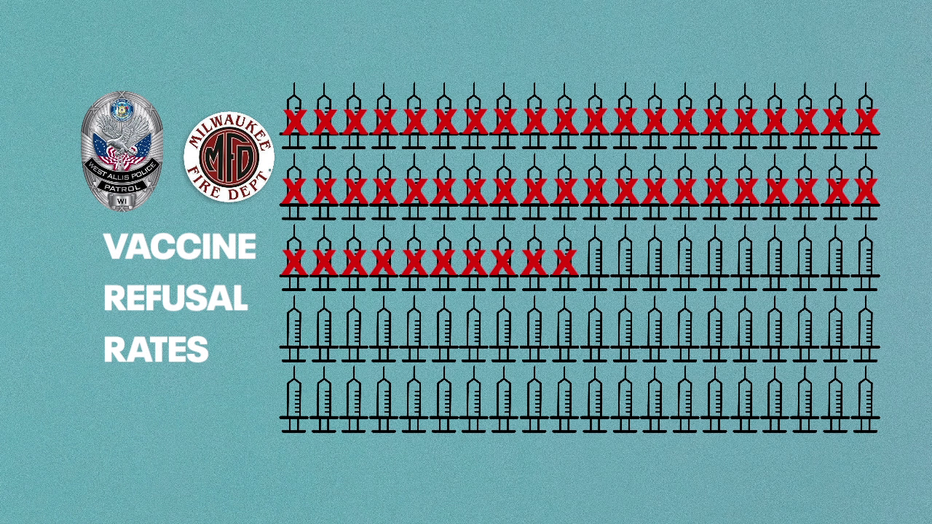
At the West Allis Fire Department, the refusal rate is 13%; Waukesha fire, 34%; Racine fire, 41%. Both the West Allis Police Department and the Milwaukee Fire Department had a vaccine refusal rate of nearly 50%.
"Everybody’s concerns are different, and you have to be respectful of that," said Joshua Parish, assistant fire chief in Milwaukee.
Parish said the 50% figure is probably outdated by now. The truth is, they stopped counting in early to mid-February. That's because the Milwaukee City Attorney's Office advised the city's health department -- which administers the vaccines to employees -- to stop sharing vaccine tracking data out of concerns for privacy.
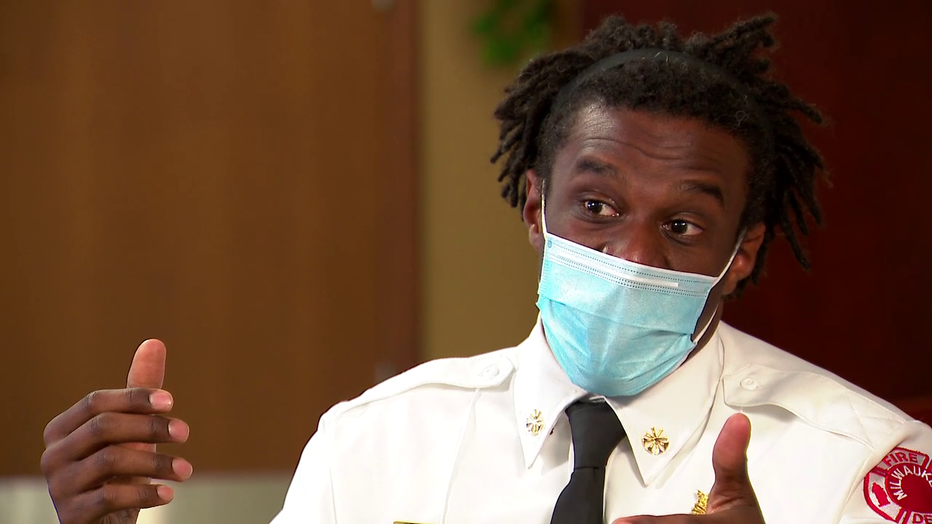
Milwaukee Fire Department Assistant Chief Joshua Parish
Whatever the number, Parish said, some firefighters just aren't buying in.
"Even if you deliver a message that is wholly accurate, it does not mean that the recipient will necessarily believe that message," said Parish.
Some of that, he said, is typical "anti-vax" sentiment that predates the pandemic.
"A lot of the generalized conspiracy theories, those things still exist," Parish said.
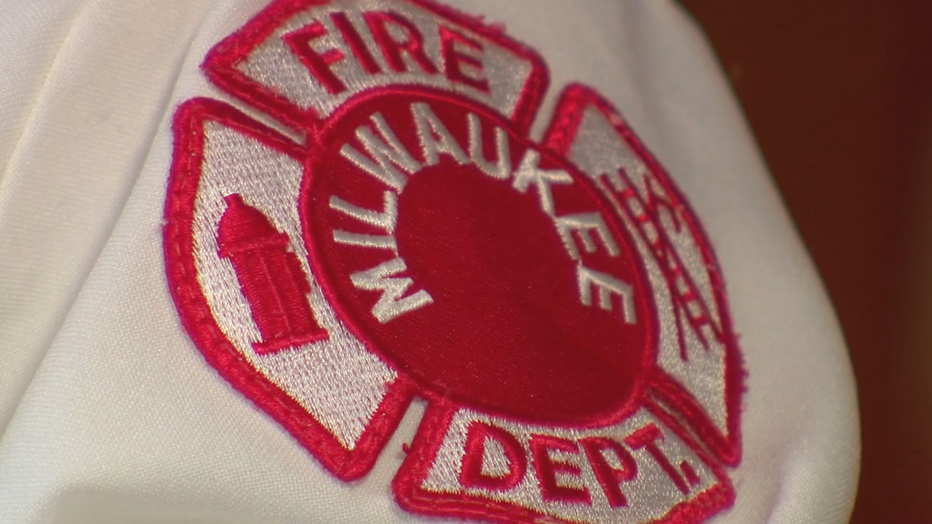
Milwaukee Fire Department
Others have specific medical questions he can't answer.
"Those are medical items that exist in their sphere and those really are their jam and we don’t want to cross that line," said Parish.
But there's another concern that is especially prevalent for an urban fire department.
"There is a history of disparate treatment," Parish said.
Combatting decades-old distrust
Marie Manning summed it up in one word -- Tuskegee.
"I just don’t trust it," said Manning. "The health care system in and of itself hasn’t been really kind to my people."
"We just don’t know what’s going to happen in the long term."
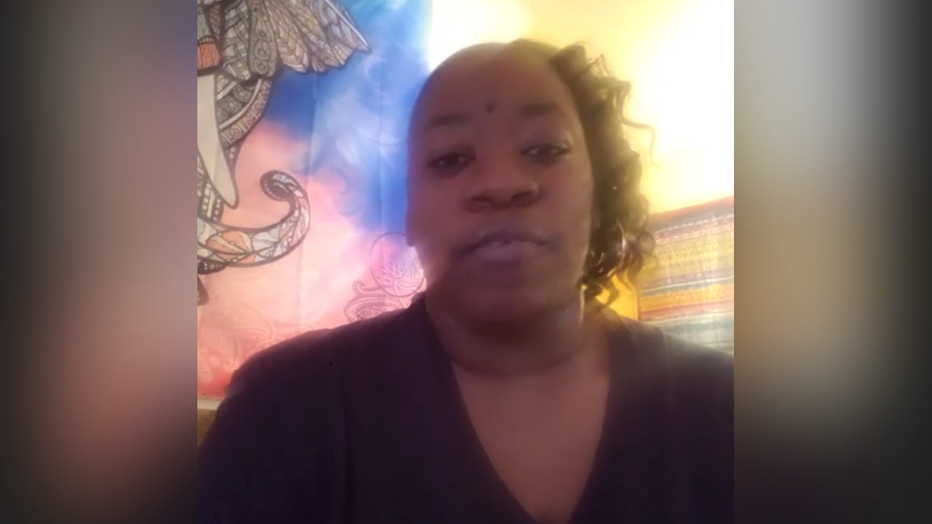
Marie Manning
Manning is a health care worker but says the federal government's infamous Tuskegee experiment is one of the main reasons she will never get the COVID-19 vaccine.
"I don’t necessarily trust the agenda here," said Manning.
In 1932, the U.S. government commissioned a study of African-American men with syphilis. The men were told they were getting free health care, but they were not.
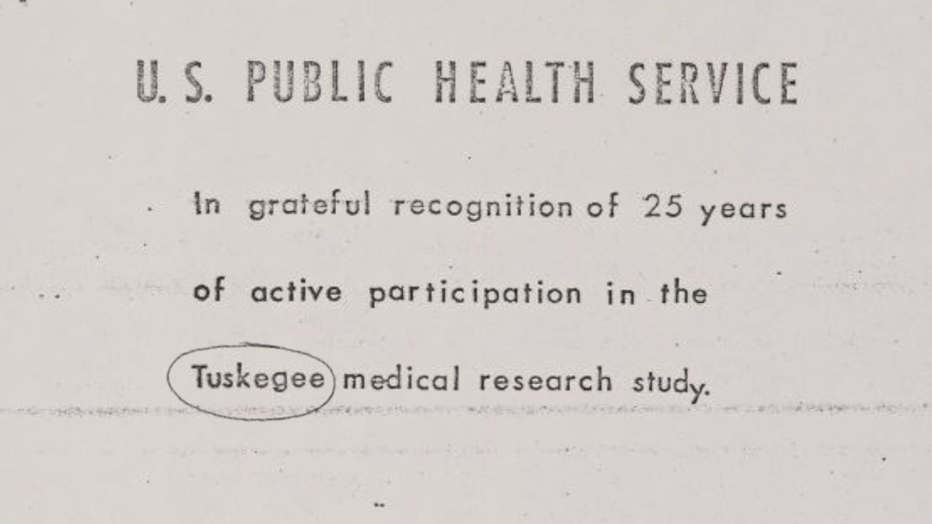
Tuskegee experiment
Instead, the government watched for 40 years as many of the participants died of untreated disease, even after the invention of penicillin.
"It's a complicated history, but it’s there," Parish said.
Parish said vaccines are only part of the equation -- since firefighters are already well-protected by N95 masks and other personal protective gear.
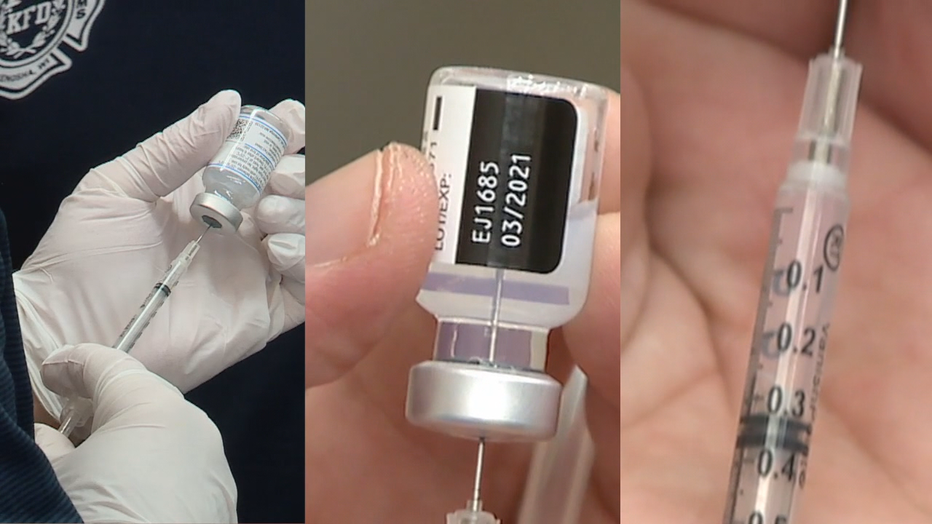
COVID-19 vaccine
Eschmann said it's about more than protecting their own personnel. It's about sending a message to everyone else.
"If it's safe for us," Eschmann said. "It’s safe for you."
All five of the fire departments FOX6 sent requests to responded with vaccine tracking data. Only two of the police departments did -- West Allis and Racine. The Racine Police Department data was so heavily redacted, we couldn't draw any statistical conclusions from it.
Meanwhile, FOX6 sent these requests in February with follow-ups in early March but is yet to receive any records or data from Milwaukee police, Waukesha police or Kenosha police.
Featured
Officials: Wisconsin 'woefully behind' on COVID-19 data cleanup
Wisconsin is "woefully behind" in cleaning up COVID-19 data and a renewed emphasis it has placed on making sure its case counts are more accurate has resulted in swings in previously reported numbers, state health officials said Wednesday.
Featured
Milwaukee County ZIP code program highlights vaccine equity efforts
Health officials say focusing on such groups will help make vaccine distribution more equitable while addressing glaring racial disparities.



